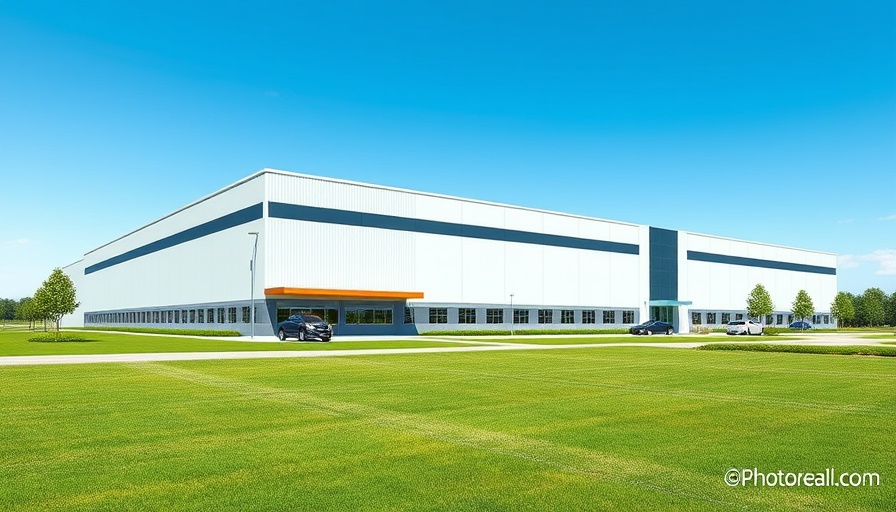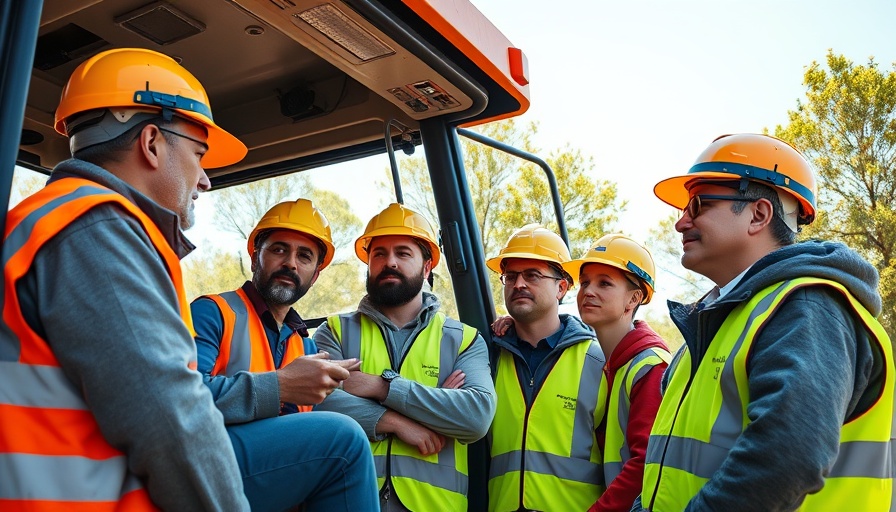
Understanding the Current Landscape of Construction Projects
As the construction industry grapples with mounting uncertainties, developers are facing a staggering $15.5 billion in delayed projects, significantly impacting plans across the country. Factors such as shifting tariffs, tax credits, and long approval processes have left many in a state of hesitation. In contrast, companies like JCB and Novartis continue to push forward, highlighting a curious dichotomy in the industry. What does this mean for homeowners and contractors?
The Impact of Tariffs on New Developments
Recent tariffs imposed by the Trump administration are a critical factor leading to project cancellations in the clean tech sector. Many developers have cited financial unpredictability caused by these tariffs, making it challenging to budget for upcoming projects. For instance, International Recycling Group's $300 million facility in Erie, Pennsylvania, had to halt its plans, showcasing the direct impact of such economic policies on development efforts.
Counterpoint: Companies That Continue to Invest
While many developers are postponing projects, some companies like JCB are taking a different approach by localizing production. JCB plans to double the size of its Texas factory, banking on the long-term benefits of reduced costs associated with tariffs. Similarly, Novartis’s commitment of $23 billion over five years emphasizes a crucial strategy: investing amidst uncertainty can pay off in the long run. These companies are proving that while challenges abound, opportunity exists for those willing to adapt.
Future Predictions: What Lies Ahead?
Looking ahead, industry experts forecast a turbulent environment in construction, with potential for both setbacks and breakthroughs. Many economists, including Ken Simonson from the Associated General Contractors of America, predict that canceled projects will likely overshadow any expansions. Homeowners and contractors should brace for delays and potential increases in pricing as raw materials continue to be influenced by economic policy changes.
What Homeowners Should Know
For homeowners considering renovations or new builds, understanding these market dynamics is essential. Potential delays may necessitate flexibility in project timelines, while budget adjustments might be required as costs fluctuate. Collaborating with contractors who are informed about the current economic landscape could yield more successful outcomes and ensure that homeowners are getting the best value for their investments.
Contractor Insights: Navigating Through Uncertainty
For contractors, the current state of uncertainties presents both a challenge and an opportunity to adapt. Successful navigation of this turbulent period may require a keen understanding of market trends, coupled with strategic partnerships that can affordably manage resources. Implementing transparency in communication with clients about potential impacts may foster trust and lead to stronger relationships over time.
The Role of Innovation in Overcoming Challenges
Innovation remains key in overcoming the hurdles posed by these uncertainties. Contractors and developers who leverage technology, such as advanced project management tools and construction software, may find themselves ahead of the competition. This focus on innovation could lead to more efficient resource allocation, timely project completions, and better overall client satisfaction.
Conclusion: Preparing for Uncertain Times
In conclusion, while many developers are postponing projects due to financial uncertainties, significant investments from companies like JCB and Novartis demonstrate that there are pathways forward. Homeowners and contractors alike should remain informed about these industry trends, preparing to adapt their plans accordingly. Exploring alternative materials or construction techniques may also present cost-saving opportunities in an era where budget predictability is increasingly paramount.
 Add Row
Add Row  Add
Add 






Write A Comment